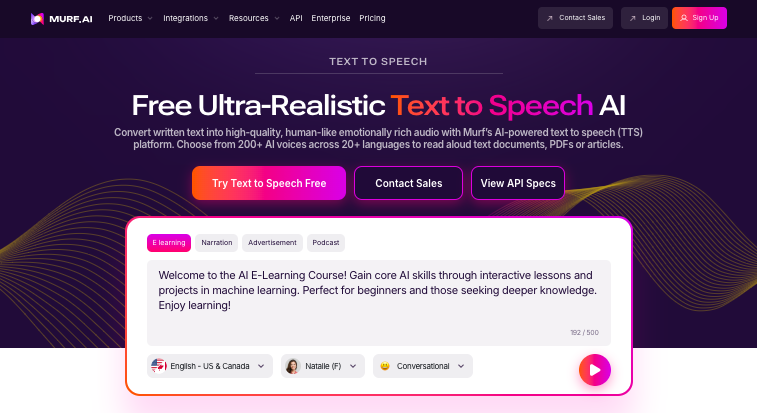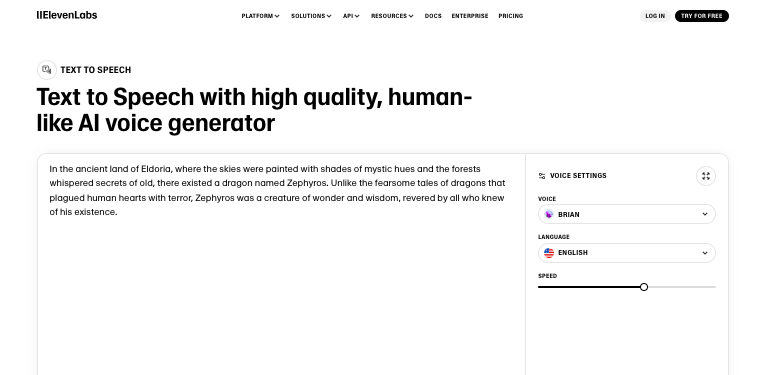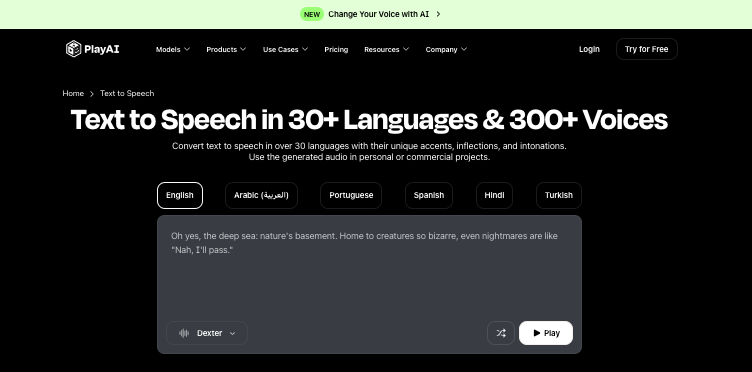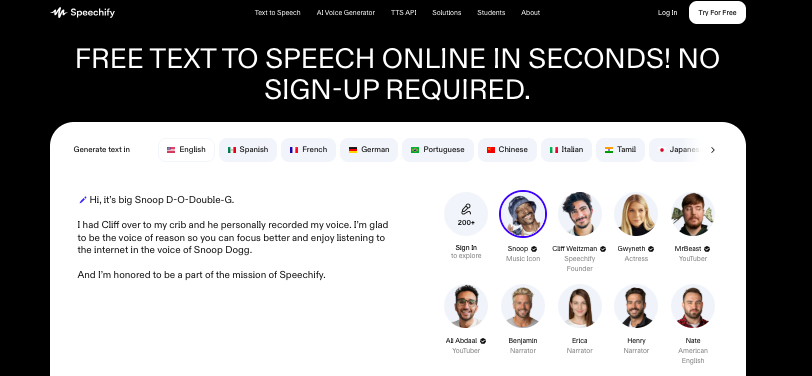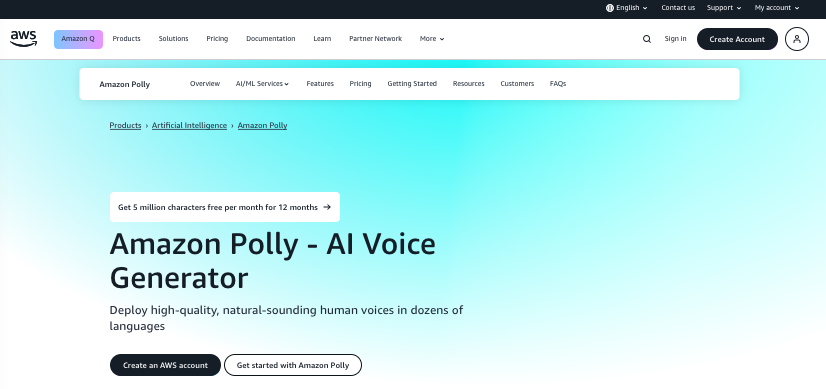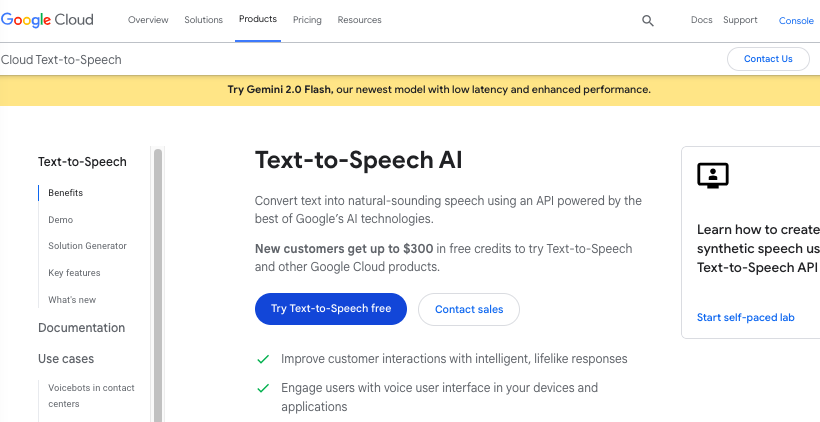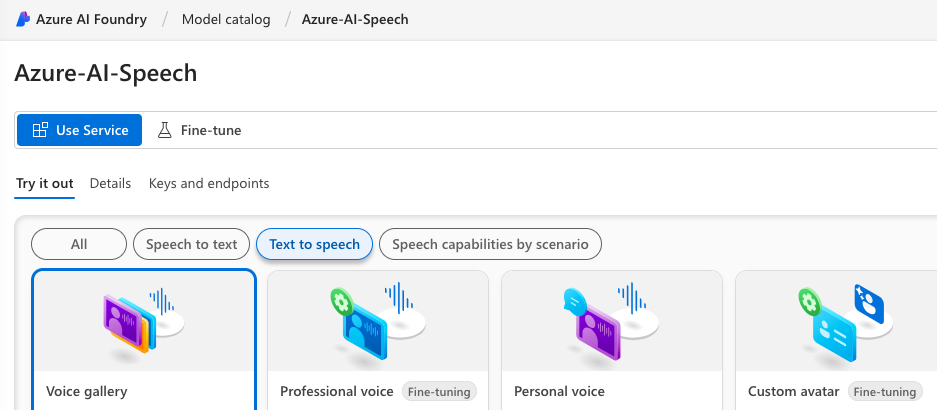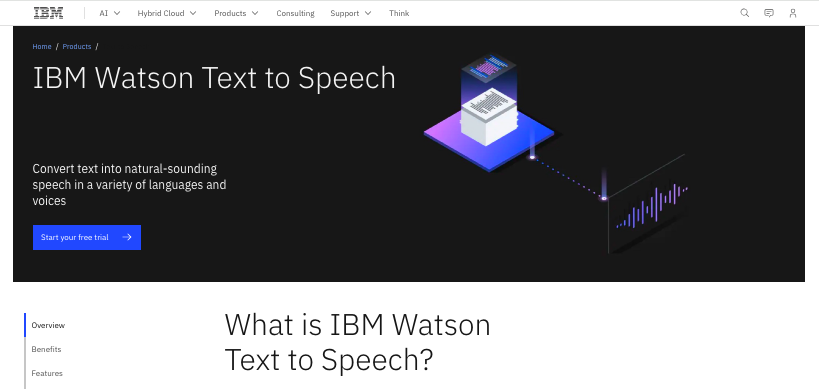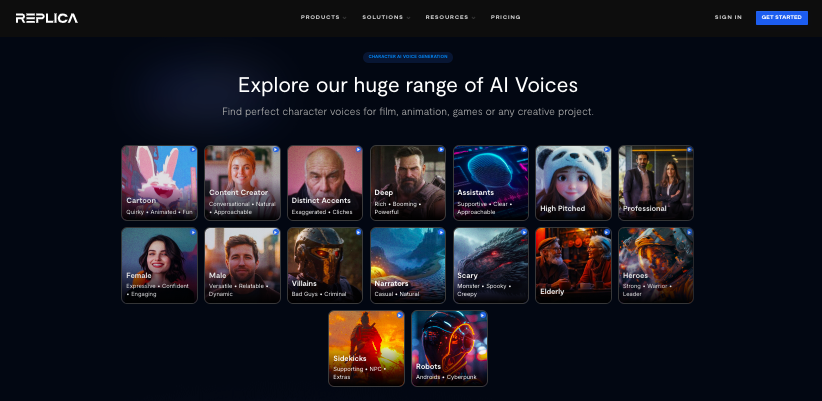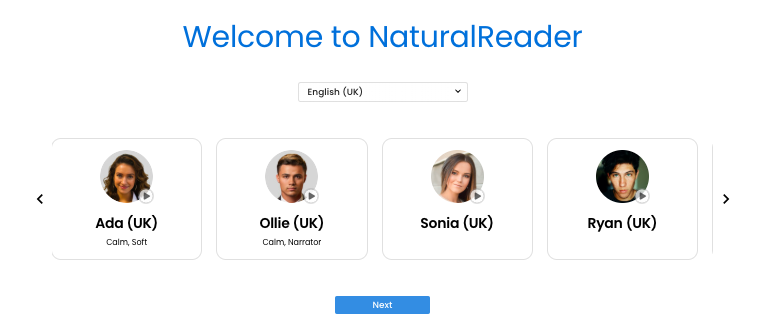Text-to-speech tools have revolutionized how we consume and create content by converting written text into natural-sounding human speech.
These powerful applications use advanced artificial intelligence and machine learning algorithms to generate lifelike voices that can read any text aloud with remarkable clarity and emotion.
They serve countless purposes, from making content accessible to visually impaired users and creating audiobooks to generating voiceovers for videos, podcasts, and e-learning materials.
Not only content creators, educators, and business professionals, anyone looking to multitask by listening to documents, can use these tools to be more efficient and productive.
Take a look at some of the best text-to-speech AI tools to consider. The list below includes, both the paid as well as free tools, which means no one is left out.
Let’s begin.
1. Murf AI
Murf AI stands out as one of the most versatile and user-friendly text-to-speech platforms available today. It offers comprehensive voice generation capabilities with excellent pricing and ease of use, making it ideal for creating YouTube content and various multimedia projects. The platform provides professional-grade voice synthesis that works seamlessly across different content types.
Highlights
- Over 200 realistic AI voices in 20+ languages with multiple speaking styles
- Advanced voice customization options for pitch, pace, pronunciation, and pauses
- Voice cloning capability to create custom digital voices from samples
- Easy integration with popular tools like Canva, Adobe Captivate, and WordPress
- Commercial usage rights and team collaboration features
Check Out: Best 15.ai Alternatives
2. ElevenLabs
ElevenLabs has gained significant recognition for its cutting-edge voice synthesis technology that produces incredibly realistic and emotionally rich speech. The platform excels at creating natural-sounding voices that are nearly indistinguishable from human speech. It’s particularly popular among content creators and developers who need high-quality voice generation for professional applications.
Highlights
- State-of-the-art voice cloning with minimal sample requirements
- Emotional speech synthesis with natural intonation and expression
- Real-time voice generation capabilities
- Multi-language support with accent preservation
- API access for developers and enterprise integration
- Voice library with diverse character options for creative projects
Also Read: Best Websites That Read Text Aloud For Free
3. Play.ht (PlayAI)
Play.ht positions itself as a comprehensive voice platform for creators and enterprises, offering over 200 realistic AI voices with low-latency text-to-speech API capabilities. The platform’s voice cloning feature captures subtle nuances to create near-exact voice replicas, while providing granular control over audio editing processes.
Highlights
- Advanced voice cloning technology with high accuracy
- Granular audio editing controls for pitch, speed, and tone adjustment
- Low-latency API for real-time applications
- Multi-voice conversations in single audio files
- Custom pronunciation dictionary for specialized terms
- Commercial licensing and enterprise-grade security
Check Out: Best Uberduck Alternatives
4. Speechify
Speechify has established itself as a leading text-to-speech solution, particularly popular for productivity and accessibility applications. Speechify Studio offers comprehensive AI voice over creation for videos, ads, e-learning, audiobooks, and various other use cases, including voice cloning, 200+ voices, and 60+ languages. The platform excels at making written content consumable through high-quality audio.
Highlights
- Over 200 natural-sounding voices across 60+ languages
- Voice cloning and custom voice creation capabilities
- Speed control and emotional expression adjustments
- Integration with popular productivity and learning platforms
- Mobile app with offline reading capabilities
- Pronunciation library for technical and specialized terms
5. Amazon Polly
Amazon Polly leverages advanced deep learning techniques to convert text into lifelike speech, making it popular for voice assistance, e-learning, audiobooks, and accessibility tools. As part of Amazon Web Services, it offers enterprise-grade reliability and scalability for businesses of all sizes.
Highlights
- Neural text-to-speech with natural prosody and intonation
- Extensive language support with region-specific accents
- Speech Synthesis Markup Language (SSML) support for fine control
- Real-time streaming and batch processing capabilities
- Cost-effective pay-per-use pricing model
- Integration with other AWS services and enterprise systems
Also Read: Best Alternatives To Resemble.ai
6. Google Cloud Text-to-Speech
Google’s text-to-speech service leverages the company’s extensive research in machine learning and natural language processing. It’s recognized as one of the highly regarded software solutions for converting text to various audio formats. The platform offers robust performance with Google’s infrastructure backing.
Highlights
- WaveNet technology for highly natural speech synthesis
- 40+ languages and variants with gender-specific voices
- Custom voice creation and voice tuning capabilities
- SSML support for pronunciation and speech control
- Audio profiles optimized for different playback scenarios
- Enterprise-grade security and compliance features
7. Azure Cognitive Services Speech
Microsoft’s Azure Speech Services provides comprehensive text-to-speech capabilities as part of its cognitive services suite. The platform integrates seamlessly with Microsoft’s ecosystem while offering powerful voice synthesis technology for various applications.
Highlights
- Neural voice technology with human-like speech patterns
- Custom neural voice creation for brand-specific applications
- Real-time speech synthesis with low latency
- Multi-platform SDK support for easy integration
- Advanced language support with regional variants
- Enterprise security and compliance certifications
Also Read: Best Adobe Voco Alternatives
8. IBM Watson Text to Speech
IBM Watson’s text-to-speech service combines artificial intelligence with enterprise-grade capabilities. The platform offers reliable voice synthesis with a focus on business applications and customer service scenarios.
Highlights
- Expressive neural voices with natural intonation
- Voice transformation and customization options
- Industry-specific voice models for specialized applications
- Real-time and batch processing capabilities
- Comprehensive API documentation and developer tools
- Enterprise security with data privacy protection
9. Replica Studios
Replica Studios focuses specifically on voice AI for creative industries, offering tools designed for game developers, filmmakers, and content creators. The platform provides unique features tailored to entertainment and creative applications.
Highlights
- Game-optimized voice generation for NPCs and characters
- Emotional range control for dramatic performances
- Voice marketplace with diverse character options
- Real-time voice generation for interactive applications
- Creative licensing options for commercial projects
- Collaboration tools for creative teams
Also Read: AI Tools That Work Without Cloud Connection
10. Natural Reader
Natural Reader provides accessible text-to-speech solutions with a focus on education and personal productivity. The platform offers both web-based and desktop applications, making it versatile for various user needs and technical requirements.
Highlights
- Cross-platform compatibility (web, desktop, mobile)
- OCR integration for reading printed documents and images
- Dyslexia-friendly features and accessibility options
- Multiple voice options with speed and pitch control
- Document format support including PDF, Word, and web pages
- Offline functionality for privacy-sensitive applications
Conclusion
From Murf AI’s user-friendly interface and comprehensive voice library to ElevenLabs’ cutting-edge emotional synthesis, each tool serves specific needs and use cases.
Enterprise users might gravitate toward Amazon Polly or Google Cloud for their scalability and integration capabilities, while content creators may prefer Play.ht or Speechify for their advanced voice cloning features.
The key is identifying your primary requirements, whether it’s voice quality, language support, customization options, or integration capabilities and selecting the tool that best aligns with your specific needs and budget.
Check Out: Best AI Story Generators

